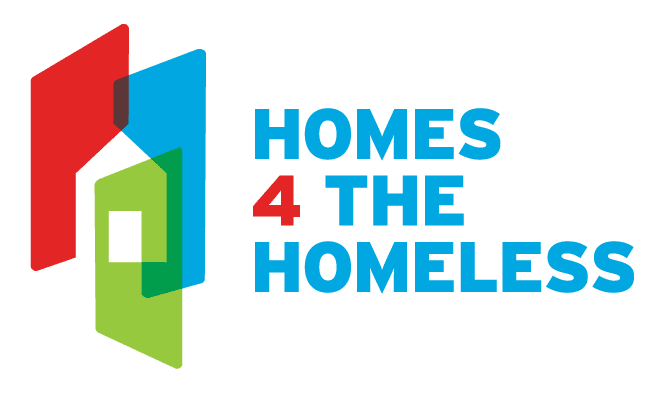Advocates Warn That Slashing Medicaid Will Flood an Already Overwhelmed Homelessness Rresponse System
Advocates around the country say the GOP’s cuts to Medicaid will make homelessness much worse.
President Donald Trump’s 2026 budget cuts $1 trillion in Medicaid spending over the next decade and requires Medicaid members to work at least 20 hours a week to receive benefits. It also includes steep cuts to other public benefits like the Supplemental Nutrition Assistance Program, funding for public housing assistance, and other programs that help low-income earning families.
Medicaid is an essential part of America’s homelessness response system. It helps pay for supportive services, affordable housing, health care for people experiencing homelessness, and other needs. According to the Urban Institute, more than two-thirds of people who are homeless have health care coverage because of Medicaid. Another 31 states use Medicaid to cover specialized supportive services that help people access and sustain housing.
To advocates, it’s not a matter of if these cuts will make homelessness worse. It’s a matter of when.
“These changes will create paperwork and administrative burdens so great that it will be nearly impossible for unhoused individuals to maintain Medicaid coverage, limiting access to critical care and yielding worse health and housing outcomes,” Bobby Watts, CEO of the National Health Care for the Homeless Council, wrote in a letter to Congressional leaders.
“Providers will also lose revenue and be burdened by spending clinic time filling out paperwork to keep patients covered rather than delivering care,” the letter continued. “Taken together, the House reconciliation bill contradicts the Administration’s stated goals of decreasing homelessness, increasing access to substance use treatment, and increasing health care efficiencies.”
The cuts were instituted at a time when homelessness continues to grow across the country. Over the last two years, homelessness has increased by more than 30% up to 771,000 people. Unsheltered homelessness has increased by 17% up to 274,000 people.
Meanwhile, home prices and rents continue to grow, which makes it more difficult for low-income earning families to afford a place to live.
America’s lack of affordable housing is the primary driver of homelessness nationwide. Advocates warn that cutting funding for Medicaid and other public benefits will make these trends much worse.
How Medicaid Impacts Homelessness
Medicaid is an essential aspect of America’s ability to address homelessness, according to the National Alliance to End Homelessness.
Not only does Medicaid help pay for health care services, it also supports services for people with complex needs, such as:
- Permanent supportive housing
- Housing navigation
- Rental assistance
- Rural clinics
NAEH CEO Ann Oliva outlined the impacts of cutting Medicaid in a letter to Congress.
“Cutting funding for Medicaid and imposing work requirements…would increase homelessness,” Oliva wrote. “Already under-resourced local homelessness systems are strained if not overwhelmed by the inflow of people into homelessness for the first time.”
The services Medicaid covers have made a significant impact at the local level as well. For instance, Denver offset about half of the cost of its Social Impact Bond (SIB) program using Medicaid.
The SIB has been widely considered as one of the most effective programs to reduce homelessness in the country. More than three-quarters of participants stayed housed for three years. Participants reported spending 127 fewer days in shelters, 48 fewer days in jail, and reduced emergency room visits by 40%.
What Advocates Are Saying
Advocates slammed the Trump administration’s cuts to Medicaid and said the policy decision was built on false premises.
For instance, Niya Kelly, director of state legislative policy, equity and transformation at the Chicago Coalition to End Homelessness, pushed back on the notion that Medicaid members don’t want to work.
“People have this misconception that people who are on public benefits don’t work or don’t want to work,” Kelly told local news station WTTW. “Six out of 10 individuals who are on Medicaid who can work, do work. For those who don’t work, it’s a lack of access to child care, maybe a disability, or they’re enrolled in school.”
Karen Salinas, who leads outreach for REACH, one of Washington state’s largest homeless outreach providers, told The Seattle Times that cutting Medicaid will create more waste, fraud, and abuse despite the administration’s aims to reduce those factors. It will also cause service providers to spend more time on paperwork than serving people seeking help.
“Human hours that are needed to sustain a system that is really not built to help people, it’s really incredible,” Salinas told the newspaper. “We could have spent so many hours actually taking care of people; instead, we’re spending so many hours just trying to figure out what is going on or if there [are any services] available. We’re just being on hold (on the phone).”
Danielle Smaha, a spokesperson for Preble Street, Portland, Maine’s largest emergency overnight shelter, told Spectrum News that Medicaid cuts will also force many low-income earning households to make tough choices between paying for food, medications, and rent.
“The most immediate effect of cuts to Medicaid (and SNAP) will be that Mainers will need to choose which basic items to pay for: food, medications, healthcare, or heating or cooling for their homes,” Samha told the outlet. “As more people struggle to meet these needs, inevitably, these cuts will lead to more housing instability and homelessness.”
Policy Choices Created This Crisis, and Policy Can End It
Now is not the time to be silent about homelessness in the U.S. or anywhere else. Unhoused people deserve safe and sanitary housing just as much as those who can afford rent or mortgage.
Poverty and homelessness are both policy choices, not personal failures. That’s why we need you to contact your officials and tell them you support legislation that:
- Streamlines the development of affordable housing
- Reduces barriers for people experiencing homelessness to enter permanent housing
- Bolsters government response to homelessness
Together, we can end homelessness.
